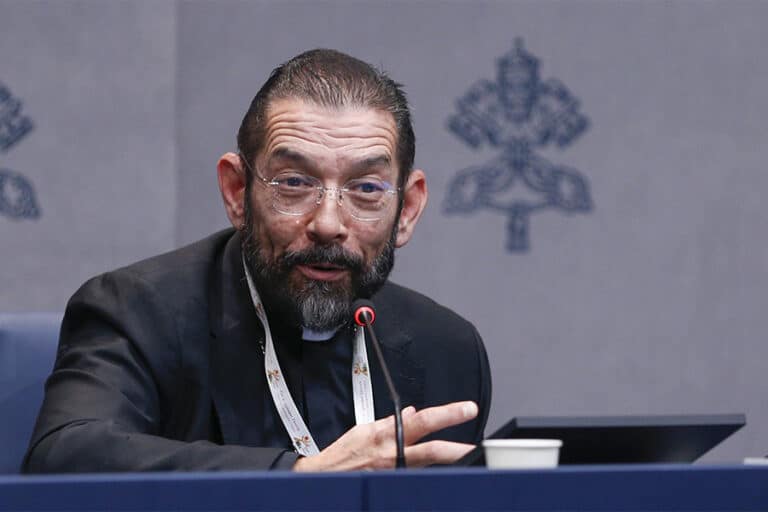
No Soppy Thinking
‘The structure of human thought creaks’, noted Bishop Daniel E. Flores in a recent lecture, ‘when looking for ways to describe the identity and works of the God revealed in Christ and testified to in Scripture.’ His text offers a blessed corrective to a current tendency in devotion and, regrettably, sometimes in theology to reason and speak soppily. It is bracing to be told that the ‘sources of the Church’s identity and mission lie within the Trinitarian life of God, precisely because the Church participates in this life by grace, in the Spirit.’ Bishop Flores’s lecture is formally about the ramifications of the Council of Nicaea. It is no less an essay in epistemology and in a responsible engagement with history: ‘History is populated by the realism of things done and said, the human acta that are in some way visible to us. This aspect keeps history from being easily malleable to our will. We cannot make it mean and say what we want.’ This insight has immense contemporary relevance far beyond the ivory tower of technical theological discourse.
